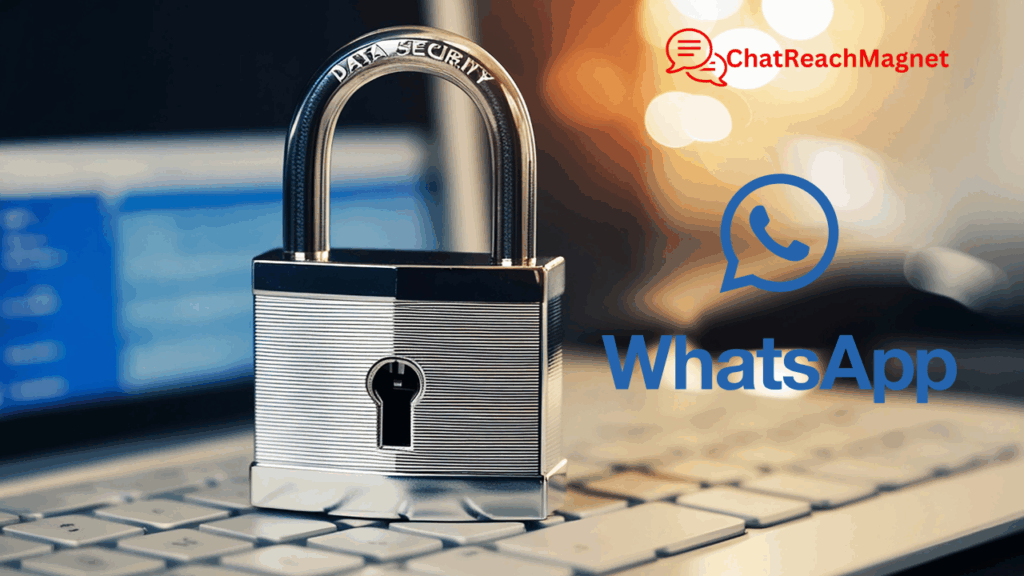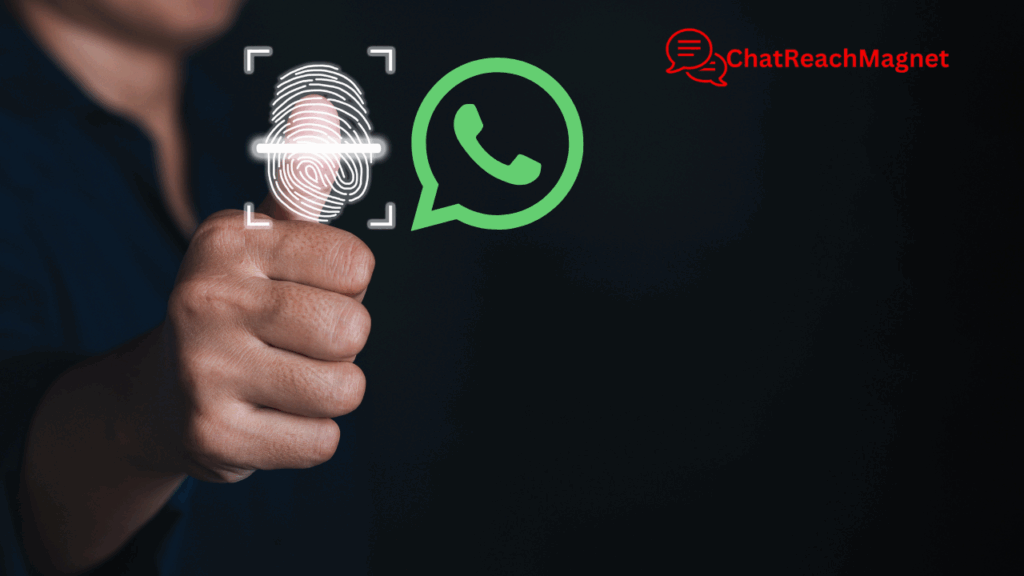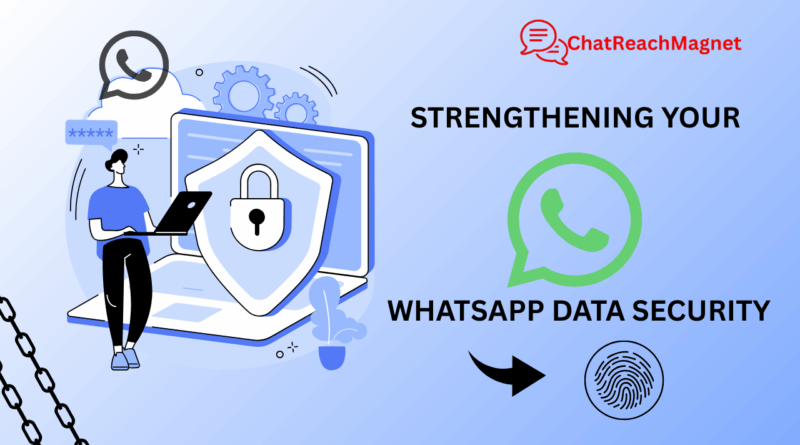Best Practices for Strengthening Your WhatsApp Data Security
In our previous post, we discussed WhatsApp data security features, including end-to-end encryption and the WhatsApp Business API.
While WhatsApp itself is designed with strong security, your own habits and practices play a huge role in determining how safe your data really is.
Hackers and cybercriminals are constantly finding new ways to trick users into handing over information. That is why you must do more than just rely on WhatsApp’s default protections.
This guide offers detailed, practical steps to enhance your WhatsApp security, whether you are an everyday user or a business managing customer data.
Why Extra Security Steps Are Necessary
Even though WhatsApp provides robust encryption, risks still exist:
Device-level vulnerabilities – If someone gains access to your phone, they can read your chats.
Human error – Many scams succeed because users click suspicious links or share their security codes.
Business risks – Companies may accidentally expose customer data if they fail to manage WhatsApp accounts properly.
Adding layers of security, you can make it much harder for attackers to compromise your account.
Best Practices for Strengthening Your WhatsApp Data Security

#1. Enable Two-Step Verification (2FA)
Two-step verification is one of the simplest but most effective ways to protect your WhatsApp account.
- You set up a six-digit PIN.
- Every time you re-register WhatsApp on a new device, the app asks for that PIN.
- Even if attackers have your SIM card, they cannot log into your account without it.
👉 Pro tip for businesses: Ensure that only the authorised admin knows this PIN, and keep it in a secure password manager.
#2. Strengthen Your Device Security
Your WhatsApp is only as safe as your smartphone. Protect your device with:
- Screen lock – PIN, fingerprint, or face unlock.
- Device encryption – Enabled by default on most modern phones.
- Remote wipe tools – So you can erase data if your phone is stolen.
For businesses, securing employee devices is essential. Provide staff with company-managed phones or enforce strong security policies for personal devices used for work.
#3. Secure Your Chat Backups
WhatsApp offers cloud backups via Google Drive (Android) and iCloud (iPhone). But here’s the catch: by default, these backups may not be end-to-end encrypted.
To strengthen backup security:
- Enable end-to-end encrypted backups in WhatsApp settings.
- Set a strong password or 64-digit encryption key that you do not share.
- Avoid storing backups on unsecured or shared cloud accounts.
👉 For businesses, storing chats should align with data protection laws like GDPR.
#4. Watch Out for Phishing and Malicious Links
Many attackers rely on social engineering to trick people into giving up sensitive data.
- Be sceptical of messages asking for personal details or OTP codes.
- Never click on suspicious links, even if they appear to come from friends.
- Hover over links (if possible) to check their true destination before clicking.
👉 Businesses should conduct staff training to help employees recognise phishing attempts.
#5. Use WhatsApp’s Built-in Privacy Controls
WhatsApp provides several privacy options that you should customise:
- Last Seen & Online Status – Control who can see when you are active.
- Profile Photo & About – Limit visibility to “My Contacts” only.
- Status Updates – Share only with trusted contacts.
- Read Receipts – Disable if you prefer more privacy.
👉 Adjusting these settings makes it harder for strangers to track your activity.
#6. Lock WhatsApp with Biometrics

WhatsApp has an option to lock the app with fingerprint or Face ID.
- Go to Settings > Privacy > Fingerprint lock/Screen lock.
- Set a short auto-lock time for maximum security.
👉 This ensures that even if your phone is unlocked, others cannot open WhatsApp without your biometric ID.
#7. Regularly Update the App
Outdated apps are prime targets for hackers. WhatsApp updates often include security fixes, so keeping the app current is non-negotiable.
- Enable auto-updates in your app store.
- Businesses hosting WhatsApp API should also apply server patches regularly.
#8. Verify Business Accounts and Watch for Impersonators
For businesses, using a verified WhatsApp Business account protects both you and your customers.
- Verified businesses display a green checkmark.
- Customers can quickly confirm they are chatting with the right company.
- Impersonators and fraudsters find it harder to trick users.
👉 Customers should always double-check business profiles before sharing sensitive information.
#9. Control Access to Business Data
For companies using the WhatsApp Business API, controlling internal access is vital.
- Implement role-based permissions – not everyone needs access to all chats.
- Use audit logs to track employee activity.
- Store customer data in encrypted databases.
This helps prevent insider threats and accidental leaks.
#10. Use Only Official Solution Providers
If your business integrates WhatsApp with CRM systems, chatbots, or automation tools, ensure they are official WhatsApp Business Solution Providers (BSPs).
- Unofficial tools may mishandle customer data.
- Trusted BSPs comply with WhatsApp’s strict data security policies.
- They also provide better support and API reliability.
#11. Stay Alert to Social Engineering Scams
Some of the most common WhatsApp scams include:
- Verification Code Scam – Attackers trick you into sharing the 6-digit login code.
- Impersonation Scam – Fraudsters pose as friends or family asking for money.
- Fake Business Accounts – Fraudulent companies send promotional messages.
👉 Always verify requests before acting. Remember: WhatsApp will never ask for your login code or PIN.
#12. Educate Yourself and Your Team
Security is an ongoing process.
- For individuals: Stay updated on the latest WhatsApp scams through blogs, forums, and official WhatsApp announcements.
- For businesses: Provide staff with cybersecurity awareness training and update policies regularly.
A well-informed user is the best line of defence.
#13. Monitor Your Active Sessions
WhatsApp allows you to check where your account is currently logged in.
- Go to Settings > Linked Devices.
- Review and remove unfamiliar devices immediately.
👉 This is especially important if you often use WhatsApp Web or desktop apps.
#14. Consider Using Separate Numbers for Business
If you run a business, avoid mixing personal and business chats on one WhatsApp account.
- Use a dedicated business number for customer communication.
- This reduces risks if one account is compromised.
- It also helps maintain professional boundaries.
Conclusiobn
WhatsApp’s end-to-end encryption and API security provide a strong base for secure communication. But no technology can fully protect you if you overlook simple security habits.
To recap, the most effective ways to strengthen your WhatsApp security include:
- Enabling two-step verification.
- Securing backups and devices.
- Staying alert to scams and phishing links.
- Using official business solutions and limiting employee access.
Combining WhatsApp’s built-in protections with proactive security practices, both individuals and businesses can enjoy safer, more private communication.
In the digital world, security is not just WhatsApp’s job—it is your responsibility too.

